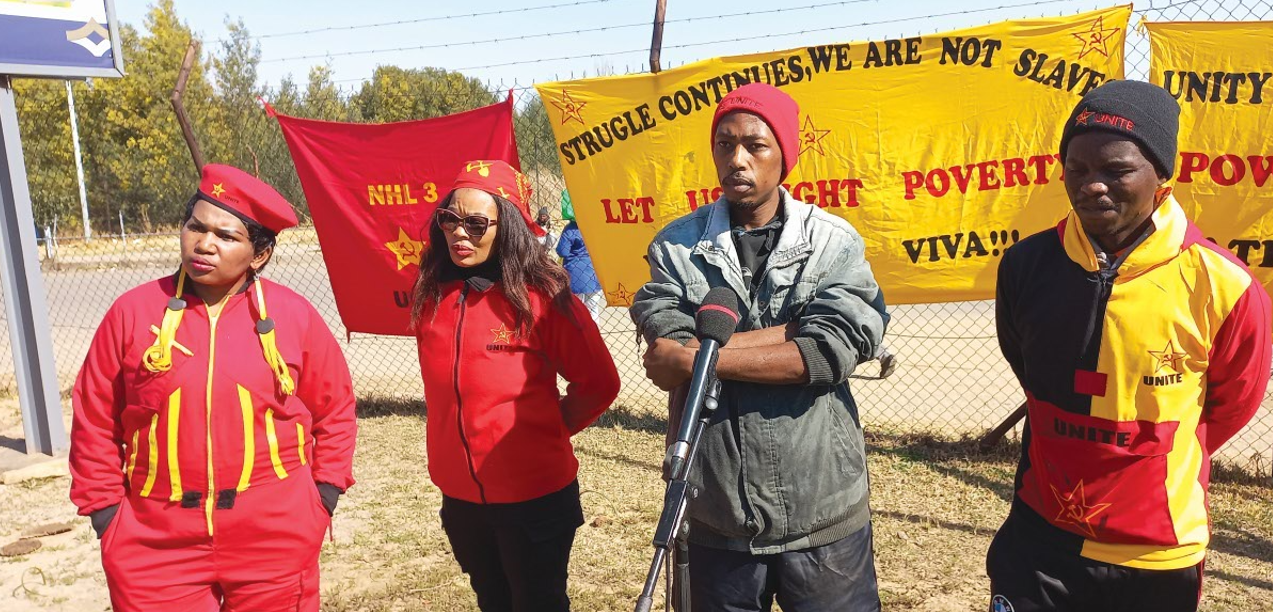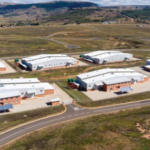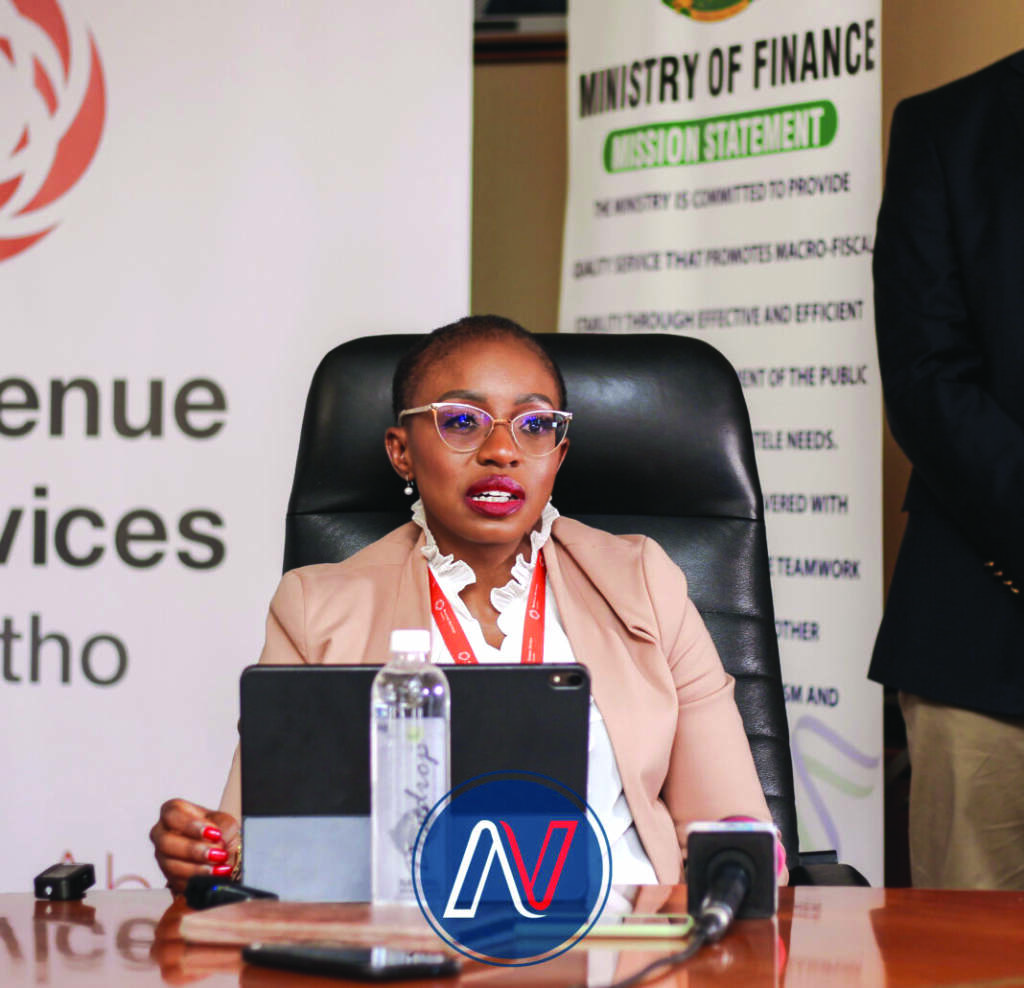- Threaten march to PM’s office over job losses
- Accuse Matekane of failing to deliver on campaign promises
Factory workers at Thetsane Industrial Area in Maseru have blamed Prime Minister Ntsokoane Matekane for deepening economic hardships following the imposition of 50 percent tariffs by United States President Donald Trump on Lesotho’s textile exports.
Speaking at a meeting organised by the United Textile Employees Union (UNITE) and the National Clothing, Textile and Allied Workers Union (NACTWU), workers accused the Prime Minister of failing to uphold promises made during the 2022 election campaign and of turning his back on the very people who helped bring him to power.
“We were promised milk and honey. Indeed, he is in power now because of us – the men and women in the factories,” said Sekake Ntho, Public Relations Officer for UNITE’s Nsieng Branch. He cited unfulfilled promises of sustainable wages, day-care centres, and affordable housing for factory workers.
Workers say they are planning to visit the Prime Minister’s office to table their grievances, demanding urgent government intervention as their livelihoods face collapse.
The outcry comes as the 90-day suspension of newly imposed US tariffs lapses today, August 1, 2025. The Trump administration introduced the 50 percent reciprocal tariffs on products from Lesotho earlier this year, jeopardising trade under the African Growth and Opportunity Act (AGOA).
The AGOA agreement allows eligible African countries to export goods to the US duty-free, with textiles and clothing being a key driver of Lesotho’s economy.
The tariffs have already triggered a decline in investor confidence, with many factories cutting staff or shutting down altogether.
Lesotho’s government previously stated that it was awaiting a formal meeting with President Trump’s administration to negotiate improved trade terms, but that engagement has reportedly yet to materialise.
In May, Bloomberg reported that Lesotho was among 20 countries the US had earmarked for new trade negotiations. While the inclusion signalled potential for dialogue, workers say they have seen no action or communication from their government.
Factory workers expressed deep frustration with what they perceive as the government’s inaction in the face of job losses and deteriorating working conditions.

UNITE President, ’Manthame ’Malemohang Thai, expressed deep frustration over the impact of trade tariffs on factory workers, noting that some factories have been forced to lay off employees.
“One might ask how we got to this point. It wouldn’t be surprising to see many women driven to the streets as sex workers,” she said. “Workers are being exploited, some even have to trade sex for employment. When such reports reach buyers, factories risk losing business as orders are withdrawn.”
Thai appealed to the government to subsidise basic commodities, arguing that this would help ease the financial burden on workers.
Some factories have come under fire for violating labour rights, failing to pay full salaries, preventing workers from joining trade unions, denying lunch breaks, and even dismissing workers without due process.
“We have a serious problem,” she continued. “Investigations often reveal that some investors have ties to those in leadership. That raises the question, what kind of leadership do we really have? Perhaps this explains the government’s silence on the issue of U.S. tariffs.”
On the proposed Social Security Scheme (SSS), Thai criticised poor management and lack of urgency in passing the bill into law. She noted that the government should have learned from the COVID-19 experience, and emphasised the need for the scheme to cover maternity leave and also benefit male workers.
She lamented that after working in factories for over 15 years, many employees have little or nothing to show for it, having been denied opportunities to make meaningful financial investments.
UNITE is calling for 14 weeks of paid maternity leave for women, and an additional two weeks of paid leave for male partners whose wives have given birth.
Thai also raised concerns about the absence of speed humps near factory zones. “It is dangerous,” she said. “If you are rushing to work, you are at risk; cars do not stop.”
She also announced that workers were preparing to go on strike to deliver their grievances directly to the Prime Minister.
NACTWU shop steward at Nsieng Group, ‘Masamuel Thoahlane, issued a strong warning, saying: “We are women who can embarrass ourselves if we want to. We can bring this country to its knees. Don’t disappoint the nation by favouring the Chinese.”
Thoahlane lamented the lack of enforcement of existing labour laws, stating that at some factories, regulations are blatantly ignored. “There is a manager who doesn’t follow the law, and those who are supposed to hold her accountable are too scared to speak out,” she said.
“Our message to the Prime Minister is clear: when he campaigned, he promised to open new factories. If he cannot fulfil that promise, he should at least ensure that the existing ones comply with the law,” Thoahlane added.
Ntima Makhetha, the Thetsane Local Chairperson under UNITE, echoed these sentiments, saying factory violations continue unchecked, flouting both national legislation and international standards. These include the International Labour Organisation (ILO) conventions, the Occupational Health and Safety Act of 2024, and the Labour Act of 2024, which mandates, among other things, the provision of transport for workers.
“There is no overtime being paid, and the ILO’s policy on lunch breaks is ignored in some factories,” Makhetha noted.
He also pointed out that Lesotho’s textile sector heavily relies on the South African market, which he described as “small and unable to absorb” the volume of jeans produced locally.
Makhetha criticised the government’s failure to engage directly with workers about their concerns. He revealed that during recent engagements with union representatives, they were informed that funds initially pledged by the government to support factories were instead redirected to settle Lesotho Electricity Company’s (LEC) debt with Eskom, South Africa’s power utility.
The unions had proposed that the government reintroduce a financial cushion for factory workers during economic hardships, similar to the M800 monthly subsidy rolled out during the COVID-19 pandemic to support struggling businesses and their employees.
“We want the Prime Minister to answer clearly: what is our future in light of these tariffs? Our employers have confirmed there are orders in place, but the burden of high tariffs threatens everything,” said Keneuoe Ncheke from Formosa.
Attempts to reach the Minister of Trade, Industry and Business, Mokhethi Shelile, were unsuccessful as his phone went unanswered at the time of going to print.
Summary
- Speaking at a meeting organised by the United Textile Employees Union (UNITE) and the National Clothing, Textile and Allied Workers Union (NACTWU), workers accused the Prime Minister of failing to uphold promises made during the 2022 election campaign and of turning his back on the very people who helped bring him to power.
- Indeed, he is in power now because of us – the men and women in the factories,” said Sekake Ntho, Public Relations Officer for UNITE’s Nsieng Branch.
- She noted that the government should have learned from the COVID-19 experience, and emphasised the need for the scheme to cover maternity leave and also benefit male workers.

Thoboloko Ntšonyane is a dedicated journalist who has contributed to various publications. He focuses on parliament, climate change, human rights, sexual and reproductive health rights (SRHR), health, business and court reports. His work inspires change, triggers dialogue and also promote transparency in a society.










